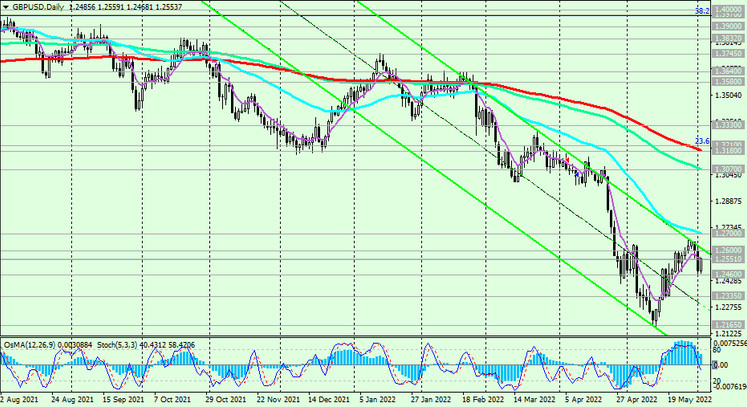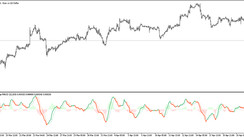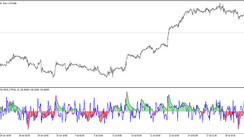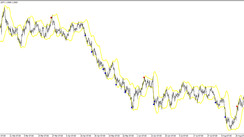Today, in the period from 12:15 to 14:00 (GMT), an increase in volatility in financial markets is expected, primarily in dollar quotes. At 12:15, the ADP report will be published and it is expected that the growth in the number of employees in the US private sector in May amounted to +300,000 (against an increase of 247,000 in April, 455,000 in March, 475,000 in February, 509,000 in January). The relative growth of the indicator should have a positive impact on the dollar quotes. Although the ADP report does not have a direct correlation with the data of the US Department of Labor, which will be published on Friday (by the way, another decrease in the unemployment rate is expected, to 3.5% from 3.6% in April), however, it is often a harbinger of official data, providing significant impact on the market.
A little later (at 12:30), the US Department of Labor will provide data on the number of repeated and new applications for unemployment benefits. It is expected that the number of initial and repeated claims for unemployment benefits will remain at the lows corresponding to the lows of the period before the coronavirus pandemic, and this is also a positive factor for the dollar, indicating the stability of the US labor market. As you know, when determining the parameters of its monetary policy, the Fed is guided (among other things) by 3 key indicators: GDP, inflation rate and the state of the labor market. A strong report on the labor market will be another argument in favor of long dollar positions.
At 14:00 (GMT), the US manufacturing orders report for April will be released.
In the meantime, the dollar and the DXY dollar index are declining after rising in the previous two days, when positive macro data from the US was published. DXY futures are traded near 102.27 at the time of writing this article.
The Institute for Supply Management (ISM) reported on Wednesday that the US manufacturing PMI unexpectedly rose in May (to 56.1 from 55.4 in April), which was also significantly better than the forecast of 54.5. At the same time, the sub-index of new orders rose to 55.1 from 53.5.
The dollar reacted positively to the statistics presented by ISM on the state of the manufacturing sector of the American economy, which forms a significant part of the country's GDP. On the eve of the published data on the index of consumer confidence of Americans (CB Consumer Confidence). Although the index for May fell to 106.4 points from 108.6 in April, it was still better than the forecast of 103.9 and suggests that Americans remain optimistic, and consumer confidence remains at high levels, despite high inflation. Yesterday US Treasury Secretary Janet Yellen, who previously served as head of the Fed, said that it was a mistake to rely on the temporary nature of the current inflation surge, given the military conflict in Ukraine and the prospect of further growth in energy prices, as well as serious disruptions in supply chains.
Today is a bank holiday in the UK (Spring Bank Holiday). This year, the authorities of the country moved this day to the beginning of June, due to the fact that the UK is celebrating the 70th anniversary of the reign of Elizabeth II. This time the holiday will last 2 days. In this regard, the banks of the UK and the Commonwealth will be closed, and trading volumes will be reduced.
Meanwhile, in the absence of major players in the financial market (regarding the pound), it is strengthening, including against the US dollar.
At the time of writing this article, the GBP/USD pair is traded near 1.2556, attempting to break through the important short-term resistance level 1.2551 (for more details, see "GBP/USD: Technical analysis and trading recommendations_06/02/2022"). Nevertheless, the downward dynamics of the GBP/USD is still prevailing.

The Bank of England is pursuing a policy of tightening monetary policy to fight inflation, while the UK economy could enter a recession this year, economists say.
The pound is also under pressure due to the difficult situation with Brexit (in terms of the protocol on Northern Ireland) that has again reminded of itself. According to media reports, the UK plans to pass legislation in June that will cancel some of the provisions of the Brexit agreement. The EU may respond by threatening to cancel the trade agreement altogether or suspend the agreement.





